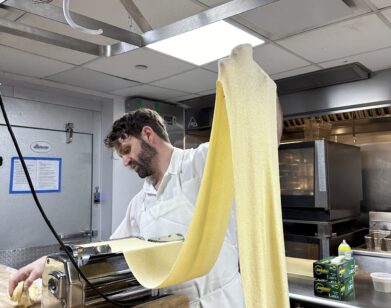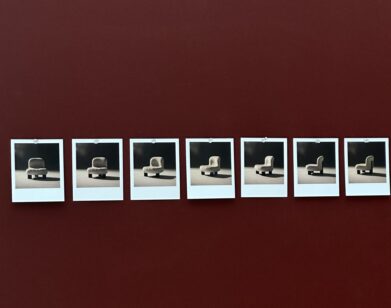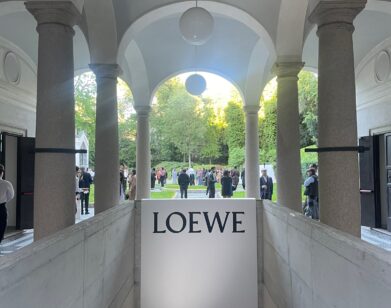Charles Dubow Writes Dirty Little Secrets

ABOVE: CHARLES DUBOW. IMAGE COURTESY OF TANYA MALOTT
Charles Dubow’s novel Indiscretion (William Morrow) is a sharp, seductive read. Set mostly in the Hamptons (with some jetsetting to sexy cities such as Paris), Harry is an accomplished older writer, happily married to his soulmate, the beautiful Maddy. Yet when Harry meets young and vibrant Claire in a chance beach encounter, a seduction starts. Claire becomes good friends with both husband and wife, herself charmed by their fetchingly bourgeois lifestyle. They host intellectual soirées, drink too much wine, skinny dip in the ocean, and picnic by day. Soon, even all that isn’t enough for hungry Claire, and she begins a steamy flirtation with Harry. Their clandestine sessions may help Harry forget his later-in-life troubles (he hasn’t written a new book in ages), yet they rip apart Harry’s happy family. With compelling twists, Dubow tells the story with stylish wit and delectable indecency. Though his characters’ morals may be murky, Dubow presents them in an unprejudiced way, adding depth to this tragic tale. We ordered a few too many drinks with Dubow and discussed satisfaction, candy bars, family, and temptation.
ROYAL YOUNG: Are we ever satisfied?
CHARLES DUBOW: Can one be satisfied? I hope not. I think there are moments after a good meal or if we’ve just had sex or something really wonderful that we’ve enjoyed. But I think we want more. Even if we think we have what we want, there is something that comes along and trips us up, and one can go, “Oh shit, I didn’t know I wanted that, too.”
YOUNG: But can you be smart enough to not take that temptation?
DUBOW: I think there’s a difference between being satisfied and tempted.
YOUNG: Could you explain that?
DUBOW: To be satisfied means you are content with what you have. Getting tempted implies something that is not good for you in the long run. It might be nice short-term, like a candy bar or a blowjob that maybe you shouldn’t have. Sometimes we have the moral strength to say, “No, I wouldn’t do that,” and sometimes we don’t.
YOUNG: It’s about weighing what you have versus what you might risk.
DUBOW: Absolutely. Morals are what allow us to say, “This is who I am, and this is what matters.” We can be tempted by many things: money, food, sex, power, status, stuff. Do you really need to have a new TV set? Not really. Does my little daughter need another stuffed animal? No. She has plenty, believe me. But she wants just one more.
YOUNG: What do you think that is? Do you equate it with an emptiness in the person? Is it a hole we’re trying to fill?
DUBOW: I don’t know if it’s a hole. We like to feel good, and we like the things that make us feel good. It’s about endorphins. If you’re a bond trader and you just had a big sale, you’re going to feel high as a kite. But maybe the next day you lose and you feel bummed out.
YOUNG: Now I feel like we’re talking about addiction.
DUBOW: Addiction means you have to have it all the time.
YOUNG: Well, we’re talking endorphins, dopamine levels, and the crash after.
DUBOW: And that’s why we want it. We try to set our lives up so that we have more things that make us feel good than not. There are very few of us who go out of our way to make ourselves feel worse.
YOUNG: [laughs] Actually, I think a lot of people might.
DUBOW: Well there are certainly very religious, ascetic people who believe in denying themselves, but I think they get a thrill out of it.
YOUNG: Right, even the people that are going out of their way to make themselves feel bad, feel good about feeling bad.
DUBOW: They do derive a real pleasure from it. In terms of the book, you have a character who is satisfied and has a pretty good life, but through a combination of booze, jet lag, lust, and maybe a real arrogance was able to think that the rules did not apply to him. And once you get on that track, there is no end in sight to what could go wrong.
YOUNG: Do you think one love can ruin another?
DUBOW: It depends on the love. I have two kids. When I had my first kid, I didn’t think I could love anything more. Then we had my daughter three years after. It’s not like I love my son less because I love her.
YOUNG: So in your book, between the wife and the mistress, do you think those are equal emotional attachments?
DUBOW: No. Harry really loves Maddy, she’s his soul. But sometimes we tend to treat people we love the most the worst. Sometimes we treat ourselves even worse. The more comfortable we are, the less effort we make. In this case, if you take something for granted there is a lack of real stimulation. Also, when men become older, there is a sense of losing your youth. Everything is not what it had been. There’s a sense of time and fear of death. When men go through their mid-life crisis, they do it for a very good reason, they’re scared. Just wait.
YOUNG: I can’t wait.
DUBOW: [laughs] I mean, it’s not all bad. But it does happen. It happens to men, and it happens to women, and we’re freaked out by it. To be able to recapture youth and cheat death are two of the oldest desires man has.
YOUNG: But you could recapture your youth and cheat death by devoting yourself to your family.
DUBOW: You can. But it’s a longer process. Family is wonderful, but it’s not always as much fun. Having your family around does not make you feel any younger. I have a son now who’s taller than I am, and his friends talk in a language I don’t really understand.
YOUNG: I want to talk to you about the flipside to all of this. The narrator of the novel is sort of sexless, in a way. I mean, the urges are all there, but he’s dedicated his life to this woman who is never, ever really going to see him in that way.
DUBOW: This might sound odd, but it wasn’t until after I finished this thing, I was taking a shower one day, and I realized that Walter and Harry were my yin and my yang. I understood both guys.
INDISCRETION IS OUT NOW.






